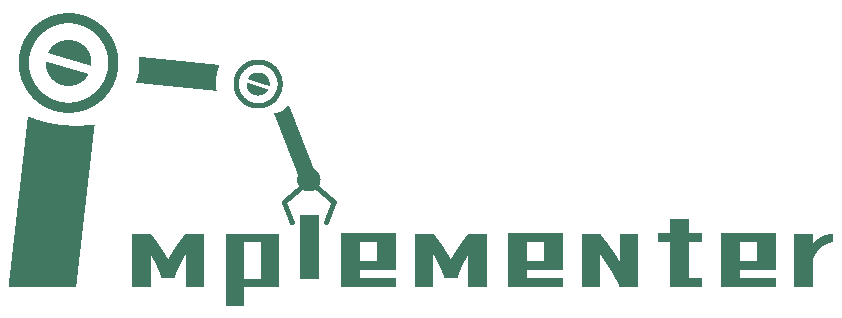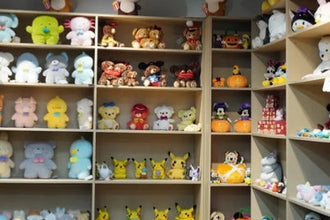For custom plush toys manufacturing, small businesses, independent creators and startups are often faced with significant obstacles when they attempt to bring their ideas to life, especially when it comes to Minimum Order Quantities (MOQ). Traditional manufacturing models usually require high MOQs make production cost-effective, which could discourage smaller customers who requirelimited runs for crowdfunding campaigns, market testing, or niche retail. Fortunately, the custom plush industry is advancing, and low MOQ production models are emerging as a viable solution to meet the growing demand for flexibility, affordability, and customization.

Why Choose Low MOQ Production for Custom Plush Toys
1. Ideal for Startups and Small Businesses
Low MOQ custom plush production models are ideal for people who are new to the market. Instead of investing thousands of units in the beginning the creators can start with a smaller amount of toys. This decreases risk for financial investment and makes development of plush toys available to even small companies with budgets that are limited. This lets them test their designs on the marketplace prior to scaling them up.

2. Supports Market Testing and Product Validation
One of the greatest benefits of production with a low MOQ is its capacity to ease market testing. Designers can offer small quantities of their product to get feedback on the product's design, durability and satisfaction of customers. Feedback from early buyers can help improve the product and increase the chance of a long-term successful product while avoiding the need to commit to mass production too early.
3. Enables Fast Turnaround and Flexibility
Making smaller batches generally means shorter time-to-market. This allows you to react swiftly to new trends or seasonal designs, or leveraging the popularity of content. Production with a low MOQ makes it simpler to alter designs or even create new ones without having to purge huge inventories first. This keeps the range of products flexible and relevant.
4. Encourages Creative Experimentation
With fewer products to make and less upfront costs makers are free to explore unique or unusual concepts. If it's a product created by a niche-based fandom or an original character concept Low MOQ production allows for new ideas that may be too risky to be mass-produced.
5. Reduces Inventory Pressure
Traditional high-MOQ models typically result in overstocked warehouses and un-sold products. Production with a low MOQ limit surplus inventory and allows businesses to keep a more efficient, sustainable operation. This is particularly important for businesses that have limited storage capacity or who want to reduce the amount of waste.
6. Aligns with Sustainable and Ethical Practices
Producing only what is necessary is the main tenet of sustainable development. Manufacturing with low MOQs supports environmentally conscious practices by preventing overproduction and utilizing resources more effectively. It can also mean tighter surveillance and more ethical working conditions, particularly when working with smaller and transparent suppliers.
7. Perfect for Crowdfunding and Pre-Order Campaigns
People who run crowdfunding campaigns typically aren't aware of the quantity they'll require before funding ends. The low MOQ production lets them produce just enough to meet backer demands without overcommitting. It helps bridge the gap between idea and production in an efficient fashion.
8. Strengthens Brand Identity and Customer Connection
With the capability to make small-scale, themed batches or limited-edition toys, brands are able to provide customers with a feeling of exclusivity and a personal connection. Low MOQ designs allow companies to respond quickly to feedback from customers, creating an engaging and personalized customer experience.

Common Low MOQ Production Models for Custom Plush Toys
MOQ is the minimum quantity of units that a manufacturer will produce in a single run. Low production models allow for minimums as low as 50 to 300 units, without sacrificing the qquality or design of the custom plush toys.
|
Production Model |
Typical MOQ |
Key Features |
Best Suited For |
|
Handmade or Studio Production |
10-50 units |
Customization, high quality. Manual handwork and a slower turnaround |
Prototypes, limited editions, art plushies |
|
Small-Batch Factory Production |
100 to 300 units |
Industrial process scaled down, semi-automated with a reasonable price |
Startups, crowdfunding fulfillment, boutique retail |
|
Pre-Order/Crowdfunded Model |
Varies (often 50-200) |
Production begins once orders are taken care of, which reduces the chance of failure |
Kickstarter, Etsy pre-sales, community-driven toys |
|
Sample-to-Order Hybrid Model |
1 sample plus 100+ MOQ |
One-off prototype, followed by a small production batches after approval. |
Custom branding Small IP testing |
|
Stock Fabric & Component Utilization |
50 to 200 units |
Utilizes stock materials to prevent custom sourcing, quicker turnaround |
Cost-sensitive projects, seasonal products |

Key Features of Low MOQ Production Models for Custom Plush Toys
Understanding the essential aspects of custom plush with low MOQ production models will help creators make informed choices and maximize the benefits of this flexible model.
1. Small-Batch Flexibility
One of the main characteristics of low MOQ production is the capacity to produce custom plush toys in small quantities, typically with a range of fifty to three hundred units. This flexibility permits creators to start their venture slowly and avoid the dangers associated with overproduction. This is particularly beneficial for new businesses or products with limited production runs that allow rapid market entry while requiring minimal initial investment.

2. Customization at Lower Volumes
Low MOQ models have been created to allow customization even at very small amounts. Creators can personalize their toys using exclusive designs, colors, patterns embroideries, labels along with packaging alternatives. Even with the smaller quantity of orders, the quality of detail in the design remains very high, allowing creators to design products that are in line with their brand's identity or concept of character.
3. Efficient Sampling and Prototyping
Another important characteristic is the process of structured sampling. Manufacturers usually provide at least one or two prototype stages, which include mock-ups, digital sketches, as well as full physical samples prior to moving on to production. This helps ensure that the final product is in line with the expectations of the customer and is in compliance with the safety as well as aesthetic requirements. This allows for iterative refinement and helps reduce the risk of design mistakes when mass-producing.
4. Use of In-Stock Materials
To reduce costs and keep production times short, many low MOQ companies use in-stock materials and components. This method does away with the need for custom dyed materials or bulk-sourcing, which is usually only possible with larger MOQs. With the help of existing resources production can be started earlier and be within budget still allowing for acceptable design variation.
5. Streamlined Production Process
Low MOQ production is based on the principles of lean manufacturing. The production process is often semi-automated, making use of machine efficiency and skilled craftsmanship when required. Production machines are flexible and modular which makes it easy to switch between various toys without a break or re-configuration costs. This flexibility is a huge benefit for companies looking to introduce numerous designs or modify existing ones frequently.

6. Cost-Efficient Logistics and Inventory Management
A smaller number of production units naturally translate into less logistics and more efficient management of inventory. With smaller storage units, transport, or track, companies can operate without the need for large warehouse space. This is particularly beneficial for businesses that sell online or that use direct-to-consumer fulfillment methods. This also reduces the burden of stock that is not sold that can take up resources in traditional manufacturing processes.
7. Compliance and Quality Control
Despite the small scale of production the quality and safety of the product are not compromised. Most low MOQ manufacturers comply with international toy safety rules like EN71 ASTM F963 and CPSIA and providing rigorous quality assurance at each phase of production. This is particularly important in the case of toys designed for use by children or retail stores.

Quality Control for Custom Plush Toy Manufacturing
8. Scalability Potential
While designed for limited runs models, production models with low MOQ typically serve as the basis to allow for the expansion of scalable. After a model is tested and becomes popular on the market it is possible for the production system to be easily adjusted to accommodate higher volume. This flexibility ensures that companies can expand organically without having to change manufacturers or alter production methods.

Key Considerations for Choosing the Right Low MOQ Custom Plush Manufacturer
|
Consideration |
Why It Matters |
What to Look For |
|
Experience with low MOQ orders |
Custom plush manufacturers should have years of experiences of producing small batches. |
An established track experience in managing orders as small as 50 to 300 units. |
|
Sampling & Prototyping Support |
Communication and design approval is essential prior to production. |
Provides multiple sampling rounds as well as physical or digital prototypes. |
|
Customization Capabilities |
Customized plush toys require a lot of flexible the design, fabric and final elements. |
Ability to manage embroidery, custom-designed shapes labels, packaging, and embroidery. |
|
Material Sourcing |
Stock and. customized materials may affect cost and lead times. |
Access to a variety of stock materials that can be used to reduce MOQs. |
|
Compliance & Safety Standards |
Custom plush toys for children, especially, must comply with international safety standards. |
Certifications such as ASTM, EN71, CPSIA as well as access to third-party testing. |
|
Communication & Responsiveness |
The smooth coordination and the timely updates avoid costly mistakes and delays. |
Friendly customer service Fluent in your native language, and clear timelines. |
|
Production Lead Time |
The speed of delivery is essential when it comes to retail launches, campaigns or for holiday celebrations. |
Transparent timelines, with a decent turnaround times for runs with low volumes. |
|
Scalability |
As your company grows it is possible that you will have to increase the volume of orders. |
Ability to increase production without changing suppliers. |
|
Quality Assurance |
Even small orders have to be able to meet the highest standards. |
Third-party or in-house QC checks are conducted during and following production. |
|
Shipping & Logistics Options |
Effective delivery methods cut costs and eliminate delays. |
Provides international shipping, tracking and efficient logistics. |

Implementer is a reliable and experienced custom plush manufacturer that specializes in low-MOQ production to support small startups, small businesses, and creators worldwide. With a emphasis on quality, flexibility and cooperation, Implementer offers end-to-end services--from designing and prototyping through to final manufacturing and packing. If you're planning to launch a brand new character or running an online crowdfunding campaign or designing limited-edition products, Implementer ensures your custom plush toys meet the highest standards of craftsmanship, safety, and brand identity.

Final Thoughts
Low MOQ production models have revolutionized the custom plush toy business to make it affordable and responsive to the needs of small-scale makers and brands. Through innovations in production, design and logistics, these models allow entrepreneurs to take creative risks with test the market affordably, and scale sustainably. As customization becomes increasingly important to consumer demands, the future of plush toy manufacturing lies in flexible, low-volume production strategies that put creativity first.







